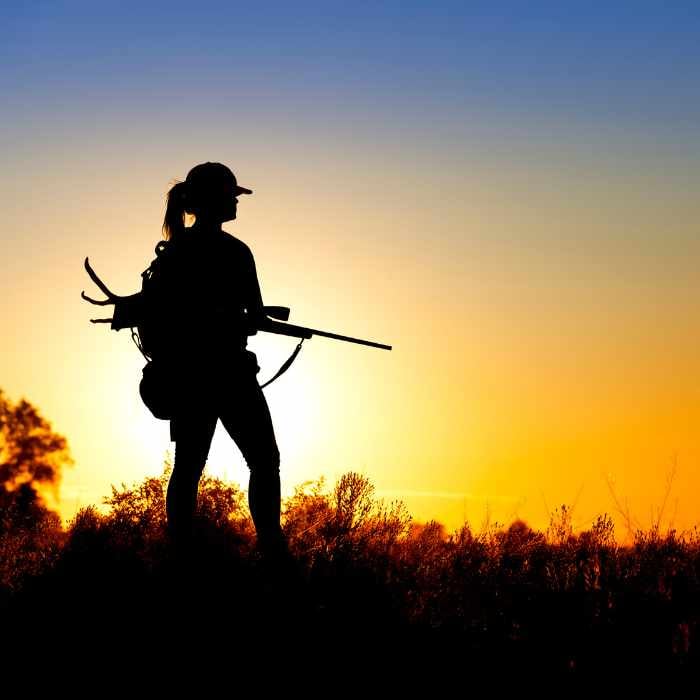As an audiologist, I have worked with many patients who have experienced noise-induced hearing loss (also known as NIHL) due to their hobbies or occupations.
While shooting sports are a popular pastime in many parts of the US, including my home state of Michigan, they can also lead to hearing loss without proper precautions. One of the most common causes of NIHL in my patients is shooting, whether from military service, hunting, law enforcement work, or target practice.
Shooter's ear is a real concern for anyone who enjoys this sport, and it's important to understand what it is and how to protect yourself. Keep reading to learn about shooter’s ear, what it means, and how to protect your ears.
What is shooter's ear?
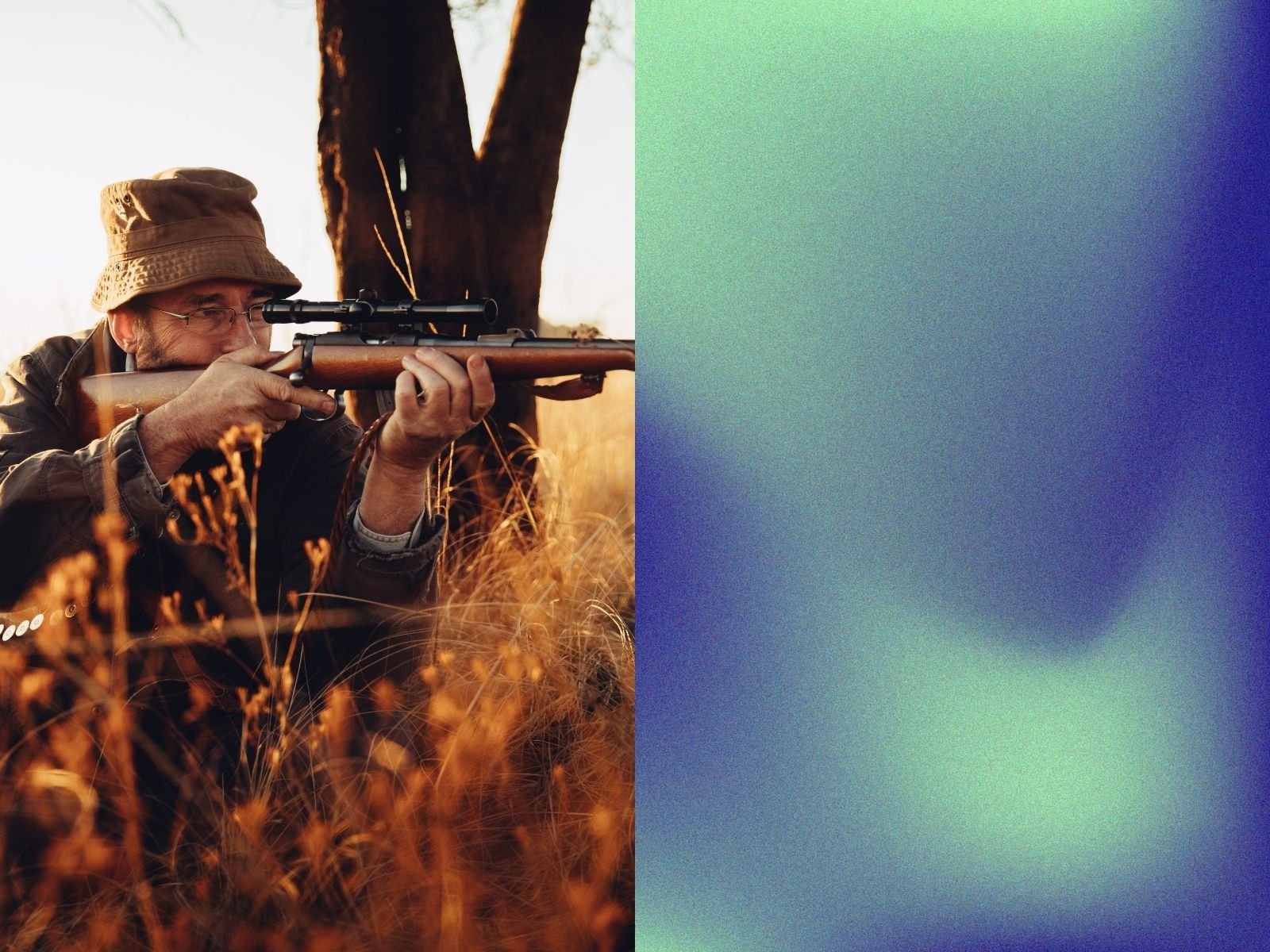
Shooter's ear is a type of acoustic trauma or noise damage caused by exposure to loud sounds like gun blasts.
When you shoot a gun, the sound can reach 140 decibels or more which to the unprotected ear is enough to cause damage in seconds. This loud sound can damage the hair cells in your inner ear instantly.
Our tiny, delicate hair cells have an incredible ability to hear, enjoy music, and understand speech. However, these cells are also delicate and susceptible to trauma from these loud sounds.
The exposure and subsequent damage from the gun blast will vary depending on the type of weapon, proximity to the gunshot, and whether the shooter is right or left-handed. On an audiogram, it's typically evident whether the shooter is right or left-handed.
For example, a right-handed rifle shooter is most likely to develop more hearing loss in the left ear. However, one thing is clear: Shooting leaves its mark not only on the target but also inside your ears.
Signs of Shooter's Ear
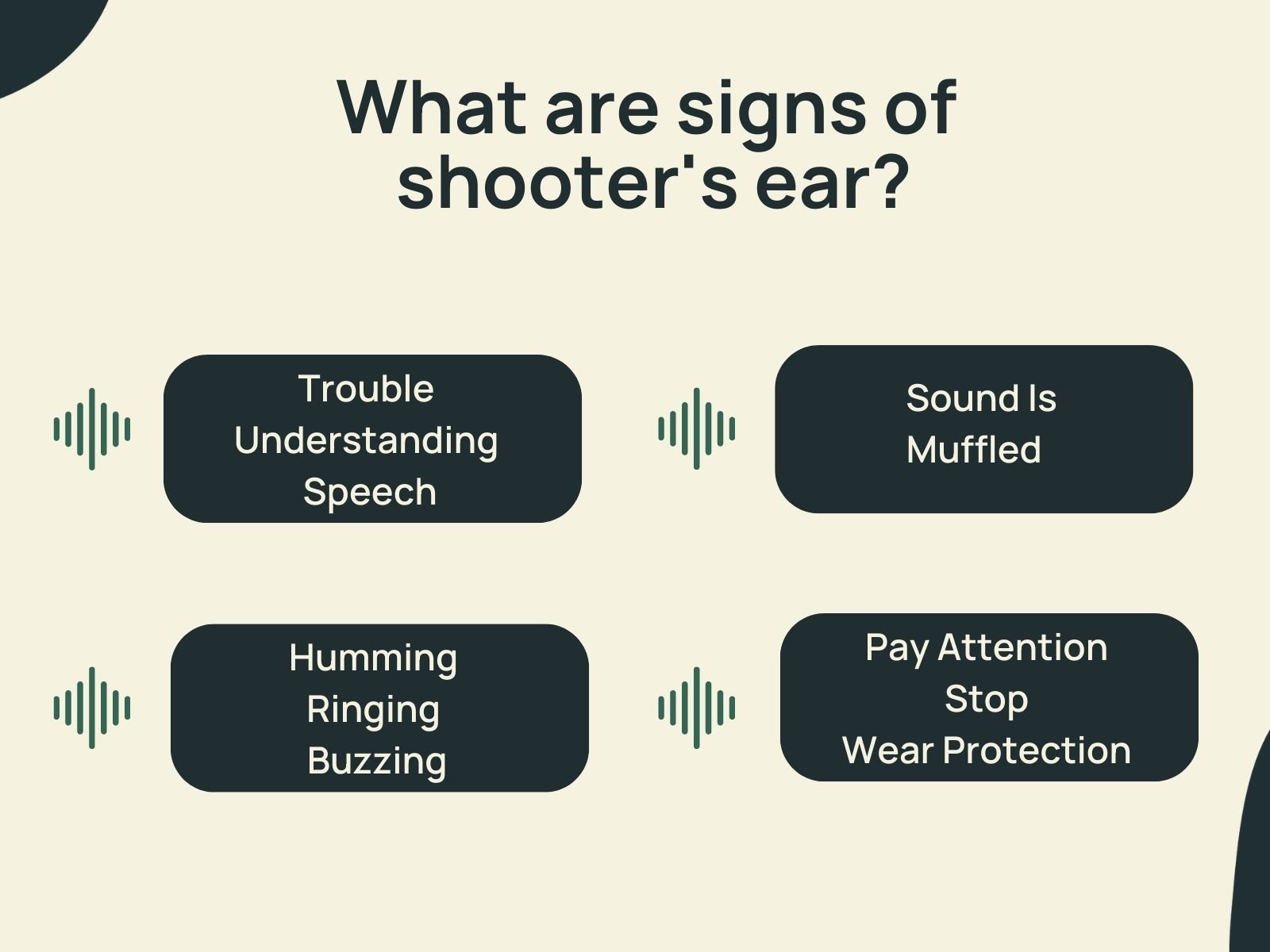
Exposure to gun blasts—even just one time—can result in:
- Ringing, buzzing, humming, or other sounds in the ear (i.e., tinnitus)
- Muffled hearing
- Difficulty with speech understanding
- Trouble understanding speech in the presence of background noise
Exposure to firearms causes a high-frequency sensorineural hearing loss, which means that you can hear people talking, but the words seem muffled and lack clarity.
If you have hearing concerns, try our 5-minute online hearing test to screen your hearing or consider setting up an appointment with an audiologist for a comprehensive hearing test.
How long does shooter's ear last?
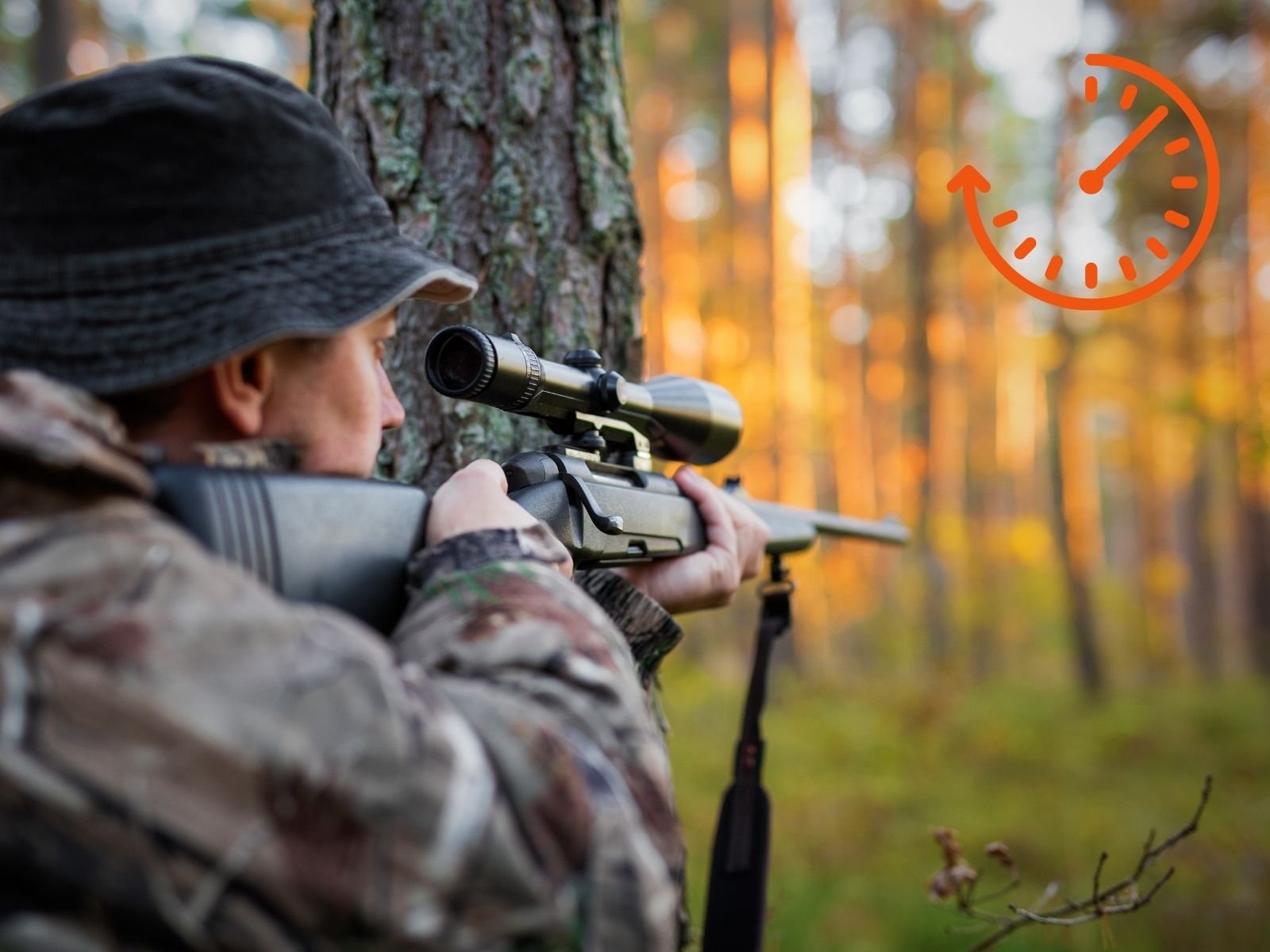
Shooter's ear can cause temporary or permanent hearing damage, depending on the severity and duration of the exposure.
If you experience a ringing or muffled sound in your ears after shooting, this is a sign that you may have damaged your hearing. This type of hearing loss can last for hours or days, but if you continue to expose yourself to loud noises, the damage can become permanent.
According to a National Health and Nutrition Examination Survey, approximately 70% of people with loud sound exposure do not use hearing protection.
Unfortunately, hunters who do not use hearing protection will develop hearing loss with near certainty. Therefore, it is important to remember that double hearing protection, such as earplugs and earmuffs are crucial to help protect your ears in the future. Hunting doesn't have to damage your hearing if you take the proper precautions.
Protecting Your Hearing from Shooter's Ear
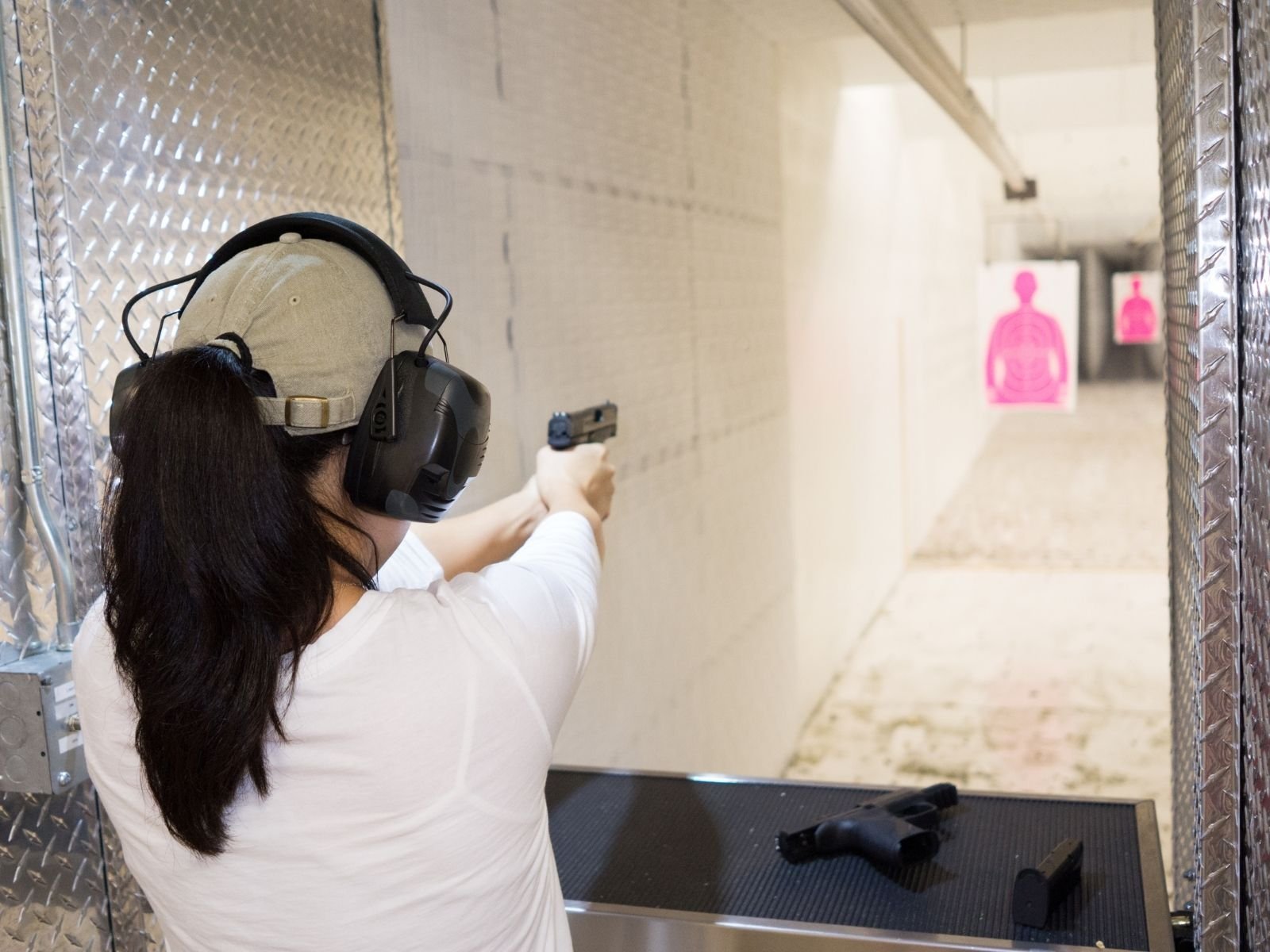
The good news is that hunting can be a great way to enjoy the outdoors, and hearing protection provides a safer way to take part in this sport.
If you or someone you know participates in shooting sports, here are some tips for protecting your hearing:
- Wear protective headphones or earmuffs around loud sounds.
- Use double hearing protection (e.g., earplugs and earmuffs) when shooting.
- Take breaks when shooting to give your ears a chance to recover.
- Have your hearing tested regularly by an audiologist if you are exposed to loud noises often.
Fortunately, shooter's ear is a preventable condition, and it's essential to understand how it affects your hearing and take the necessary steps to protect it.
If you find yourself experiencing any signs of hearing loss due to shooting, contact an audiologist for a comprehensive hearing evaluation. With the right tools and precautions in place, you can keep enjoying your favorite outdoor sport while protecting your hearing.
Will hearing aids protect my ears?

Hearing aids can help improve your hearing if you have already experienced hearing loss, they are not designed to protect your ears from loud noises.
In fact, wearing hearing aids in a loud environment can actually make hearing damage worse, because the increased volume can damage your ear further.
It's important to use proper ear protection whenever you are shooting, even if you wear hearing aids.
Best Shooter's Ear Protection
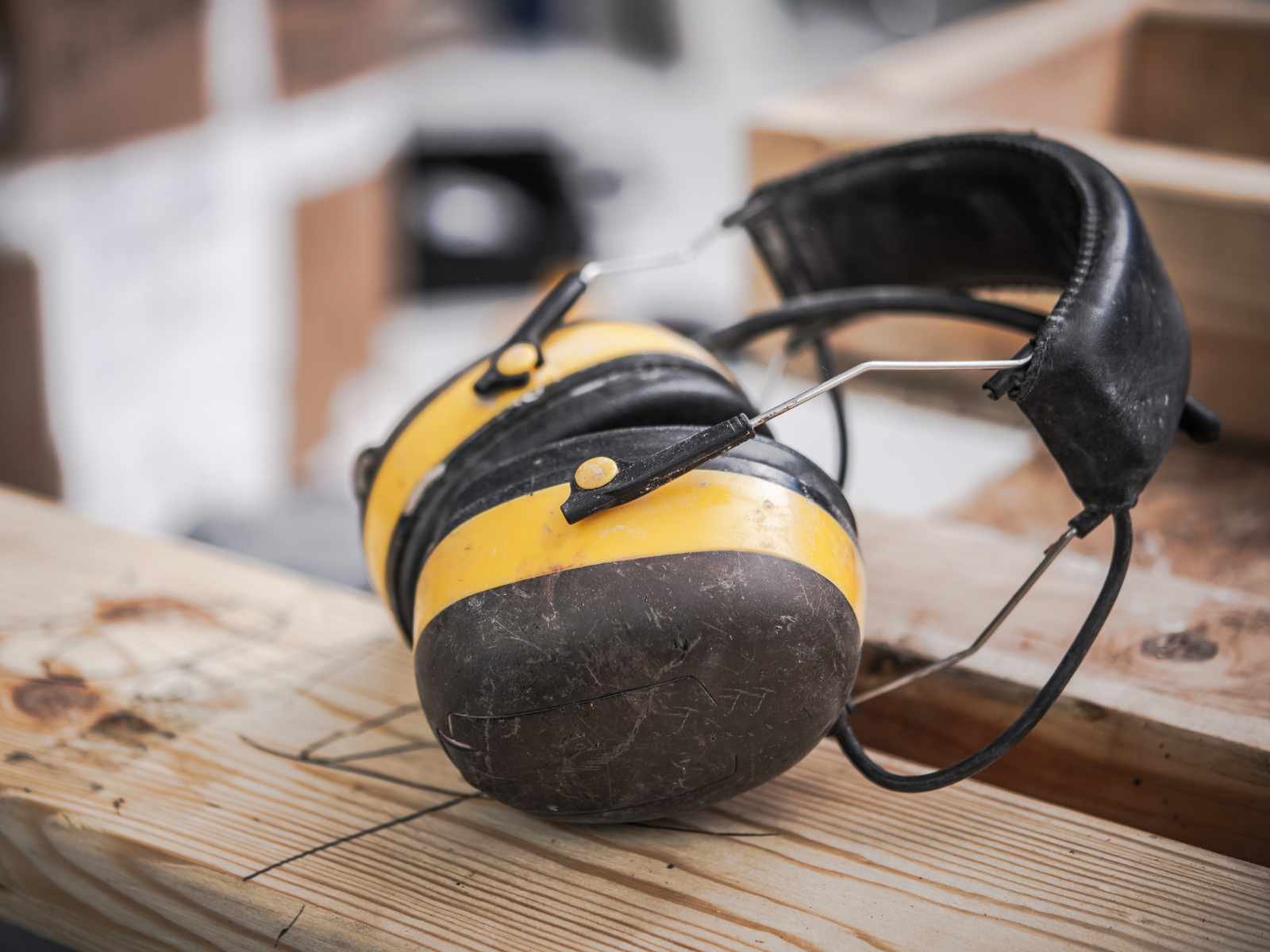
The best way to protect your hearing while shooting is to use devices or earmuffs specifically designed for shooting. These products are designed to reduce the decibel level of the loud noises you are exposed to while at the shooting range.
Some high-end electronic earmuffs allow you to adjust the sound level around you, which can be helpful when communicating with others while shooting. Electronic hearing protection is a great way to protect your hearing while still hearing your surroundings.
Electronic Earmuffs
This type of hearing protection allows you to hear speech and other environmental sounds clearly, while still providing hearing protection to block loud impulse sounds from rifles and pistols. Howard Leight Impact Pro Electronic Earmuffs are one great option.
Electronic Earbuds
Another option for hearing protection are electronic earbuds. For example, Axil GS Extreme 2.0 earbuds are a combination of Bluetooth earbuds, noise isolation headphones, and electronic earmuffs. These earbuds offer hearing protection, reducing sounds over 85 decibels, while still allowing you to hear conversation without muffled sound quality.
Discover the best hearing protection for shooting and hunting
Conclusion
Shooter's ear is a real concern for anyone who enjoys shooting, but it is also preventable. By using proper ear protection and understanding the risks of shooting, you can protect your hearing and continue to enjoy your hobby for years to come.
If you are experiencing hearing loss or ringing in your ears after shooting, it's important to speak with an audiologist who can help you find the right treatment options to improve your hearing. Remember, your hearing is a precious resource, and it's worth taking the time to protect it.
Frequently asked questions
Gunshots produce noise levels ranging from approximately 140 to 190 decibels, depending on the firearm and caliber. Without hearing protection, this intensity is well above the threshold for immediate hearing damage.

